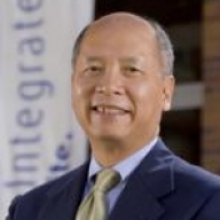CBE Seminar (ZOOM): Cells, Microbes, Communication and Surfaces

Department of Chemical and Biomolecular Engineering
University of California, Irvine
Abstract: Mammalian cells and microbial species such as bacteria and fungi communicate via surfaces and interfaces. Their ability to communicate is key to the formation of communities and the ability to thrive. These communication pathways, if disrupted, can reduce the virulence of bacteria and fungi. On the other hand, facilitating cell signaling can promote and even control the cell types that can differentiate and thrive on surfaces. This presentation reviews research in our lab on the use of micro- and nanostructured surfaces to control cell and microbial behavior on surfaces. The effort to develop medical devices based on the understanding of such behavior is described.
Bio: Albert Yee's research focuses on the materials science aspects of polymers and soft materials, particularly on how they are used to impact nanotechnology. His recent projects include nanoimprinting and nanopatterning using polymers; biomedical, micro- and nanodevices fabricated from polymers; and fracture, failure and toughening of polymers, composites and nanocomposites.
Yee has experience in industry as well as academia. He was a research scientist at General Electric Research Lab and served on the faculty of the University of Michigan, where he held teaching, research and administrative positions. Prior to coming to Irvine, he was the executive director of the Institute of Materials and Research Engineering (IMRE) in Singapore. From 2004 to 2007 he was the director of the UCI division of the California Institute for Telecommunications and Information Technology (CALIT2). He is a fellow of the American Physical Society and of the Polymers, Materials Science and Engineering Division of the American Chemical Society. Recently he was also elected as a fellow of the Polymer Chemistry Division of ACS. In 1994, he won the Japan 94 Award of the International Adhesion Society.
Yee’s research group is highly diverse. He has had Ph.D. students from chemistry, physics, materials science, chemical engineering, biomedical engineering and mechanical engineering. His former students now all have successful careers in academia, and in the chemical, microelectronics and automotive industries, and in patent law.
Share
Upcoming Events
-
MSE 298 Seminar: Quasi-1D/2D Charge-Density-Wave Materials - From Exotic Physics to Application Prospects
-
EECS Seminar: Steering Diffusion Models for Generative AI, From Multimodal Priors to Test-Time Scaling
-
MAE 298 SEMINAR: Hypersonic Viscous Aerothermochemistry - External Aerothermodynamics and Scramjet Fuel-Air Mixing
-
CBE 298 Seminar: Finding Catalysts of Gut Reactions - The Gut Microbiota in Disease Onset and Treatment
-
CEE Seminar: Confirming a Critical Foundation of Global Warming - Direct Observational Evidence from Space of the Impact of CO2 Growth on Infrared Spectra
